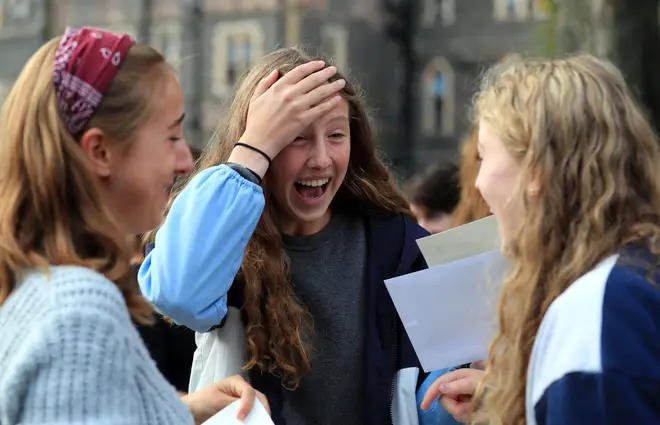
Clive Bull 1am - 4am
22 August 2019, 11:08

The proportion of GCSEs awarded top grades has risen for the second year in a row after the biggest exam shake-up for a generation.
The pass rate edged up to 67.3% in England, Wales and Northern Ireland - up 0.4 percentage points on last year.
More than one in five (20.8%) UK GCSE entries scored one of the three top grades this year, up 0.3 percentage points from 20.5% last summer.
The proportion receiving the top grades - at least a 7 or an A grade - is the highest since 2015 and marks the second year-on-year rise in a row.
The proportion of entries getting at least a 4 or a C grade is also the highest since 2015.
Girls are still outperforming boys at every GCSE grade, with more getting 7s/As, 4/Cs and Gs/1.
66.2% of females scored at least a 4 or a C grade, compared to 61.7% of males.
Hundreds of thousands of students received their results on Thursday after sitting the Government's tough new GCSE courses.

Under England's exams overhaul, GCSEs have been toughened up, with less coursework, and exams at the end of the two-year courses rather than throughout.
Traditional A*-G grades have been scrapped and replaced with a 9-1 system, with 9 the highest result.
A 4 is broadly equivalent to a C grade, and a 7 broadly equivalent to an A.
Ahead of results day, school leaders raised concerns that the new GCSE courses are "demoralising" for lower-achieving students.
A poll by the Association of School and College Leaders (ASCL) of 554 members in England found that eight in 10 believe the reformed courses are having a detrimental effect on struggling students.